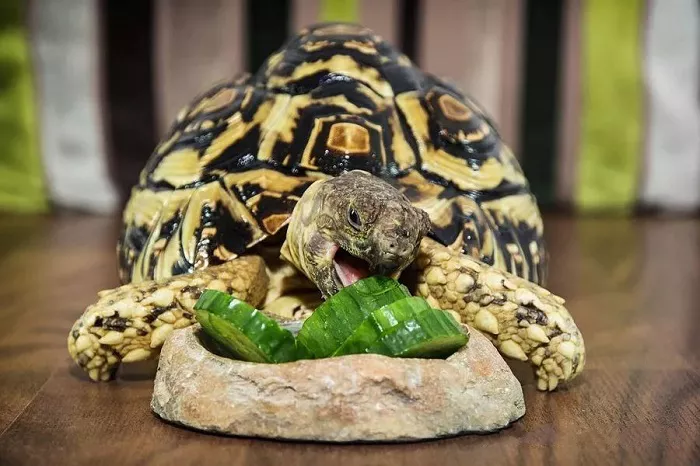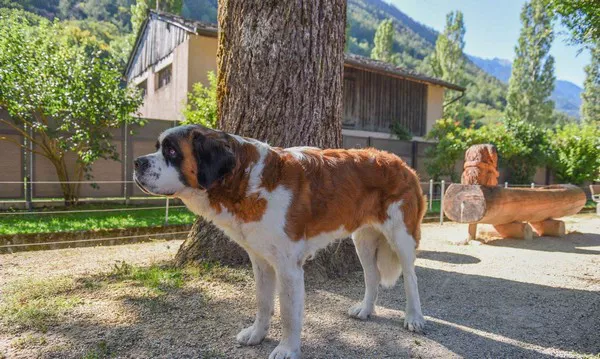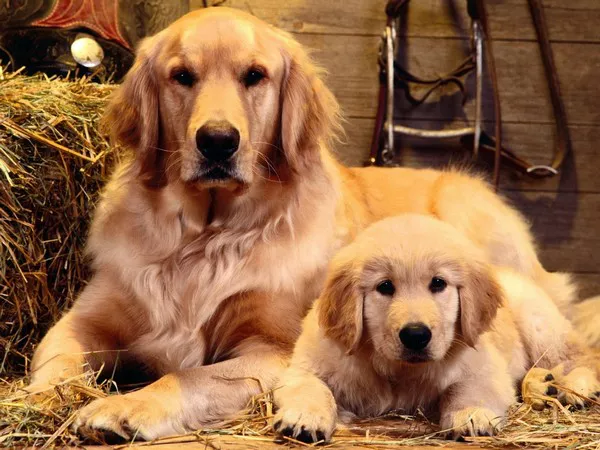Tortoises are herbivores and require a specific diet to ensure they receive the proper nutrition for their health and wellbeing. it is important to be aware of which ones are safe and which should be avoided, and provide appropriate nutrition for your pet and ensure that they are healthy and longevity.
What can tortoises eat?
Tortoises are herbivores and eat a variety of plant-based foods. Some of the foods that tortoises can eat include:
1. Grasses:
Tortoises love to eat different types of grasses such as Bermuda grass, Timothy grass, and Orchard grass. These grasses provide them with a good source of fiber and help keep their digestive system healthy.
2. Leafy greens:
Leafy greens are a great source of vitamins and minerals for tortoises. Some of the leafy greens that they can eat include kale, collard greens, dandelion greens, and turnip greens.
3. Vegetables:
Tortoises can also eat a variety of vegetables such as carrots, squash, and sweet potatoes. These vegetables provide them with essential vitamins and minerals such as beta-carotene, vitamin A, and potassium.
4. Fruits:
Tortoises can also eat fruits such as strawberries, bananas, and apples. However, fruits should be given in moderation as they are high in sugar.
5. Hay:
Hay is an important part of a tortoise’s diet as it provides them with fiber and helps keep their digestive system healthy.
It is important to note that not all plants are safe for tortoises to eat. Some plants can be toxic and even fatal to tortoises. Before feeding your tortoise any new type of plant, make sure to research if it is safe for them to eat.

While there are many foods that are safe for tortoises to eat, there are also several foods that are toxic and should be avoided at all costs.
Here is a list of foods that tortoises can’t eat:
1. Processed Foods
Tortoises should not be fed any type of processed food, including chips, crackers, cookies, or bread. These foods are often high in salt, sugar, and preservatives, which can lead to health problems in tortoises.
2. Dairy Products
Tortoises are unable to digest lactose, the sugar found in milk and dairy products. Feeding tortoises dairy products can lead to digestive problems and diarrhea.
3. Meat
Tortoises are herbivores and should not be fed any type of meat, including poultry, beef, or fish. Their digestive system is not designed to process animal protein, and feeding them meat can lead to serious health problems.
4. Avocado
Avocado contains persin, a toxin that can be lethal to tortoises. Even small amounts of avocado can cause serious health problems, including heart damage and respiratory failure.
5. Rhubarb
Rhubarb contains high levels of oxalic acid, which can bind to calcium in the body and prevent its absorption. Feeding rhubarb to tortoises can lead to calcium deficiency and metabolic bone disease.
6. Tomato Leaves
While the fruit of the tomato plant is safe for tortoises to eat, the leaves and stems contain solanine, a toxin that can cause digestive problems, seizures, and even death.
7. Spinach
Spinach contains high levels of oxalic acid, which can bind to calcium in the body and prevent its absorption. Feeding spinach to tortoises can lead to calcium deficiency and metabolic bone disease.
8. Mushrooms
Mushrooms can be toxic to tortoises, causing digestive problems, liver damage, and even death. It is best to avoid feeding mushrooms to tortoises altogether.
Nutritional requirements for tortoises
Tortoises require a balanced diet to ensure that they are getting all the nutrients they need. A balanced diet for a tortoise should consist of:
1. Fiber:
Tortoises require a high-fiber diet to keep their digestive system healthy. Foods such as grasses and hay provide them with a good source of fiber.
2. Calcium:
Tortoises require a high-calcium diet to keep their shells strong and healthy. Foods such as kale, collard greens, and dandelion greens provide them with a good source of calcium.
3. Vitamins and minerals:
Tortoises require a variety of vitamins and minerals to stay healthy. Foods such as leafy greens, vegetables, and fruits provide them with essential vitamins and minerals.
4. Water:
Tortoises require fresh water to stay hydrated. Make sure to provide them with a shallow dish of fresh water that is changed daily.
In conclusion, tortoises are herbivorous reptiles that require a balanced diet to stay healthy. As a pet owner, it is important to provide them with a variety of foods that are safe for them to eat and that meet their nutritional requirements. By feeding your tortoise a balanced diet, you can ensure that they live a healthy and happy life.
















